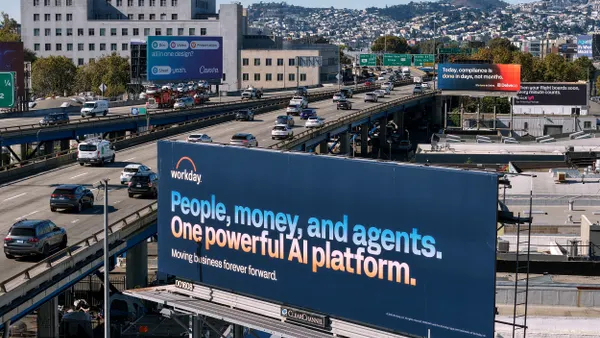UPDATE: The House held its first legislative hearing on H.R. 2474, The PRO Act, Wednesday with former NLRB members, the president of the AFL-CIO and a former University of Pittsburgh Medical Center worker who alleged he was terminated for attempting to organize his workplace as witnesses.
Lawmakers and witnesses in favor of the bill cited the decline of union membership; the inability of the NLRB to enforce penalties on employers who infringe on workers' rights outlined in the NLRA; the "chilling effect" that mandatory captive audience meetings, firings, replacement hirings during strikes; and other union-busting activities as ills the bill seeks to address.
"The NLRA essentially is a car driving with a boot on it because it has to get to federal court each time it wants to enforce its remedies," said former NLRB chairman Mark Gaston Pearce. "It slows down the process and victims are further damaged by the passage of time."
Opponents of the bill, including former NLRB Chairman Philip Miscimarra, cited worker privacy, the lack of a secret ballot to decide union leadership in certain cases, a repealed ban on secondary boycotts and infringement on state right-to-work laws as their objections to the bill. Miscimarra also suggested the bill would affect the future of work.
"[T]his is the worst time in U.S. history, and probably the worst time in human history, to adopt a national labor policy that increases employment-related conflict, costs and disruptions, which companies can and will avoid by using more-automated systems," he said. "This bill, if enacted, will inevitably cause more investment in technology and less investment in people."
Dive Brief:
- Congressional Democrats Thursday introduced companion bills that, in addition to increasing union protections, would undo the U.S. Supreme Court's ruling in Epic Systems Corp. v. Lewis and redefine joint employment under the National Labor Relations Act (NLRA). Specifically, it would prohibit employers from requiring that workers waive their right to engage in collective or class-action litigation and codify the Obama-era Browning-Ferris joint employment standard — a standard the National Labor Relations Board is actively working to undo.
- The Protecting the Right to Organize (PRO) Act, according to a press release from Rep. Bobby Scott, D-Virginia, would strengthen workers' rights to strike for higher wages, better working conditions and other workplace improvements; establish a mediation process between employers and newly formed unions to enable them to successfully reach a first contract; and protect union elections against "coercive captive audience meetings." It also would define penalties for employers that violate workers' rights and misclassify them as "supervisors and independent contractors," Scott's release said.
- According to a fact sheet on the bill, it also would allow unions to negotiate the right to collect fair-share fees with employers "to prevent free-riders from benefiting from the representation and services unions must render without paying their fair share for those services."
Dive Insight:
The PRO Act would fortify worker rights that Democrats say have been eroded or threatened under the Trump administration. Its proposed protections address the misclassification of independent contractors in the era of gig work, and as its name suggests, the bulk of its stipulations strengthen workers' rights to unionize and collectively bargain for better workplace conditions. According to a fact sheet released by the committee, the bill would establish rights that are not covered by the NLRA.
"The [NLRA], the federal law that protects workers' right to stand together and negotiate with their employers, does not empower workers to enforce their labor rights in court or permit the Board to assess monetary penalties that could deter and punish unlawful conduct, such as firing workers for seeking a union or insisting on better working conditions," the sheet said.
For organizing workers who face retaliation, something alleged by worker activists at Google last month, the bill could provide additional protections, embolding other workers to join their ranks. It would force employers to rethink how they classify independent contractors and adopt an employee-friendly definition of joint employment.
Were the bill to pass, HR professionals might need to overhaul their organizations' union practices — especially if they use "captive audience meetings" to discourage unionization or retain union-busting consultants without informing workers. The first hearing on the bill is slated for Wednesday, May 8.













